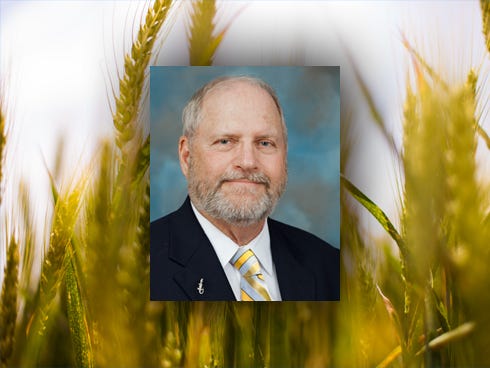
We at the University of Florida’s Institute of Food and Agricultural Sciences like to say the state is our campus. Twenty years ago, we formally extended the campus to Milton when our first classrooms opened there.
That’s helped more than 130 people earn UF bachelor’s degrees in natural resource conservation or plant science without ever having to make the five-hour drive to Gainesville.
Those 130 are a who’s who of Panhandle agriculture and natural resources. They include:
•Sheila Dunning, UF/IFAS Okaloosa County Extension agent;
•Trent Mathews, USDA district conservationist and Sweet Seasons Farm owner;
•Chelsea Miller French, USDA soil conservationist;
•Dan Wesley of the Northwest Florida Water Management District;
•Wayne Phillips, Rocky Bayou Country Club golf course superintendent;
•Josiah Raymer and Barry Ballard of Emerald Coast Growers;
•Leah McCue of the Florida Department of Environmental Protection
•Jeremy Preston, natural resources wildlife section, Eglin Air Force Base.
We’re throwing a 20th birthday party for our Milton campus teaching programs on Friday, May 8. It’s a celebration of our alumni, but it’s also a thank you to community leaders on the Panhandle, to our teaching partner Pensacola State College, and to our supporters.
If you want to help us blow out the candles, contact Robin Vickers at 983-7134 or rvickers@ufl.edu.
MORE BROADLY ACCESSIBLE EDUCATION
Some may say the click-click-click of a mouse navigating students through online courses is the death knell of the traditional brick-and-mortar university with its physical classrooms.
I disagree. Face-to-face will continue to be the preferred and best learning option for many students.
Yet we also have a duty as a land-grant university to make higher education more broadly accessible. It gets challenging with more than 30,000 applicants seeking 6,400 spots in our freshman class in Gainesville. That’s why we invest in sending stellar faculty, a practical curriculum and modern facilities right to your doorstep.
Students who want to enter UF on the Milton campus as transfers face the same rigorous admission standards as any other applicants, but it does make it much less likely you’ll be rejected for lack of space, as can happen in Gainesville.
Online learning has, of course, extended UF’s reach worldwide. Our new UF Online program is one of the first in the nation to put full four-year bachelor’s degrees online, including one in environmental management in agriculture and natural resources.
HOMEGROWN TALENT'S IMPORTANCE
Still, we believe that, in some of the courses so important to the agricultural and life sciences we teach, it’s best to do labs and other hands-on experiences in person.
There’s no computerized equivalent of “Plant Communities of the Florida Panhandle Field Lab,” where students go into the field to learn how to identify local plants and flowers and to learn about the soils and hydrology associated with each plant community.
Beyond the courses' specifics, though, it’s important to have homegrown talent to do the important work of agriculture and natural resources in the Panhandle. Not only do these leaders help drive the local economy through the sales of food, fuel and fiber and the budding agritourism scene, but they are stewards of the environment that makes the Panhandle such a special place.
To have world-class talent, you need world-class training. We don’t want you to miss the opportunity to develop talent because people can’t (or won’t) go to Gainesville. That’s why we’re so committed to making the University of Florida not only the state’s flagship public institution of higher learning but your neighborhood university.
Thanks for being such great neighbors and hosts for 20 years.
Jack Payne is the University of Florida’s senior vice president for agriculture and natural resources and leader of the Institute of Food and Agricultural Sciences.
Email him or tweet JackPayneIFAS
This article originally appeared on Crestview News Bulletin: Celebrating 20 years of NWF agricultural teaching programs
